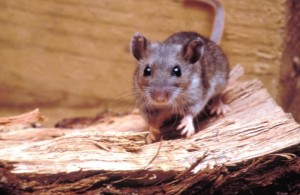After reporting three hantavirus cases so far in 2014, including one fatality, Colorado state health officials are warning Coloradans to avoid exposure to the lethal virus while cleaning cabins or other buildings that were closed up for winter.

Hantavirus is a serious and potentially fatal respiratory disease carried by deer mice. When cleaning out rodent-infested structures, people can breathe in dirt and dust contaminated with deer mouse urine and feces and become infected.
People are urged to be particularly careful where there is evidence that mice have been in and around buildings or wood or junk piles. An increase in the number of mice around a home often precedes a person getting the disease.
“Last year’s abundant rainfall and the present heavy snowpack have provided moisture for ample vegetation for rodents to eat. As a result we see an increase in deer mouse populations,” said Dr. Jennifer House, state public health veterinarian at the department. “May, June and July are the months when most human cases occur. People need to take precautions to prevent exposure to hantavirus before they begin cleaning structures that have evidence of rodent activity.”
Dr. House said to ventilate structures before cleaning and spray any accumulation of dust, dirt and mouse droppings with a mixture of bleach and water. “Never vacuum or sweep an area without first spraying it down,” she emphasized. “If you have deer mice around your home, assume there is some risk of exposure to this virus. The more mice, the greater the risk, but some people have been infected by handling a single mouse.”
Precautions
· Rodent-proof buildings by plugging holes or other mouse entryways. Conduct year-round rodent control or hire a professional exterminator.
· Keep indoor areas clean, especially kitchens. Dispose of garbage in sealed containers.
· Store food in rodent-proof containers, including food for pets, livestock and birds.
· Remove rodent hiding places near the home such as wood, junk and brush piles. Store firewood at least 100 feet from your house. Keep vegetation around the house well-trimmed.
The Colorado Department of Public Health and Environment has documented more than 80 cases of hantavirus since it began tracking the disease in 1993. More than one-third of these individuals died from the infection. Most Colorado hantavirus cases happen when people are exposed to deer mouse urine and feces in and around their residences. For more infectious disease news and information, visit and “like” the Infectious Disease News Facebook page.


One thought on “Colorado health officials warn public of hantavirus after three confirmed cases in 2014”